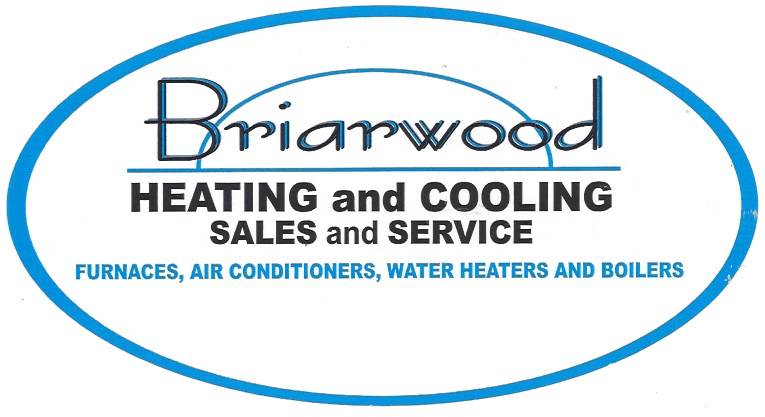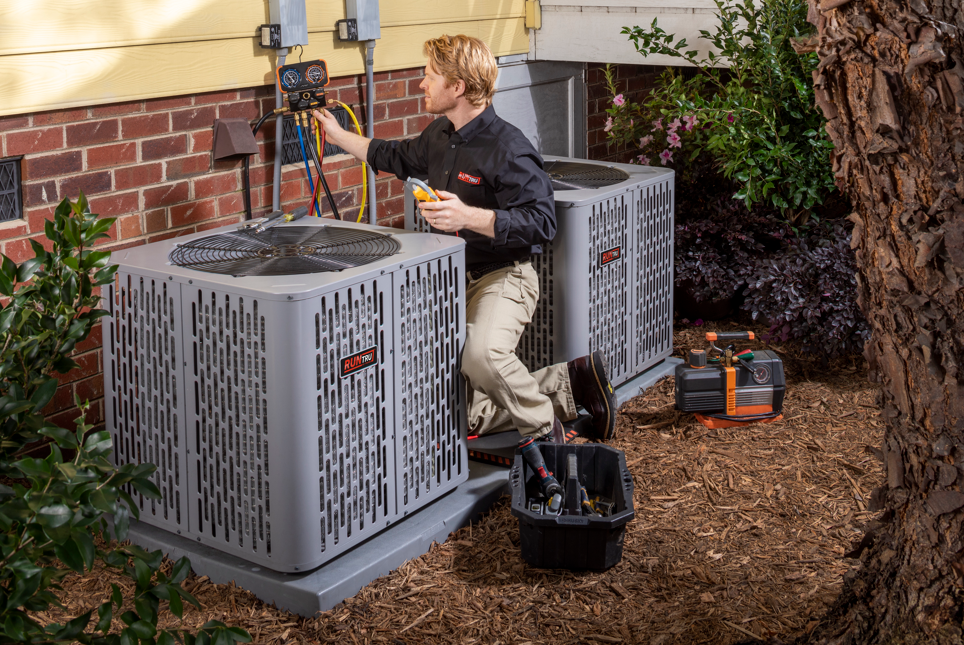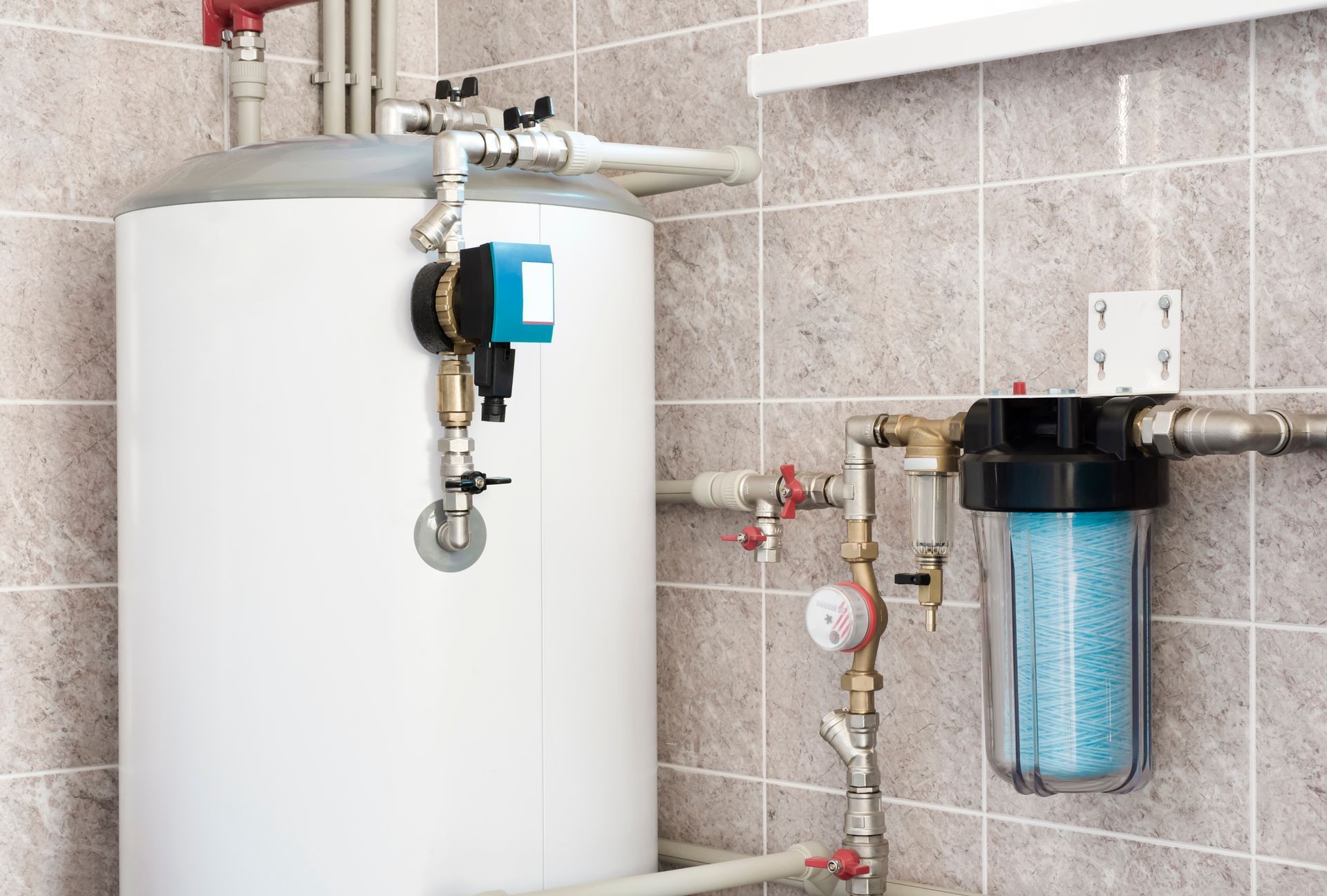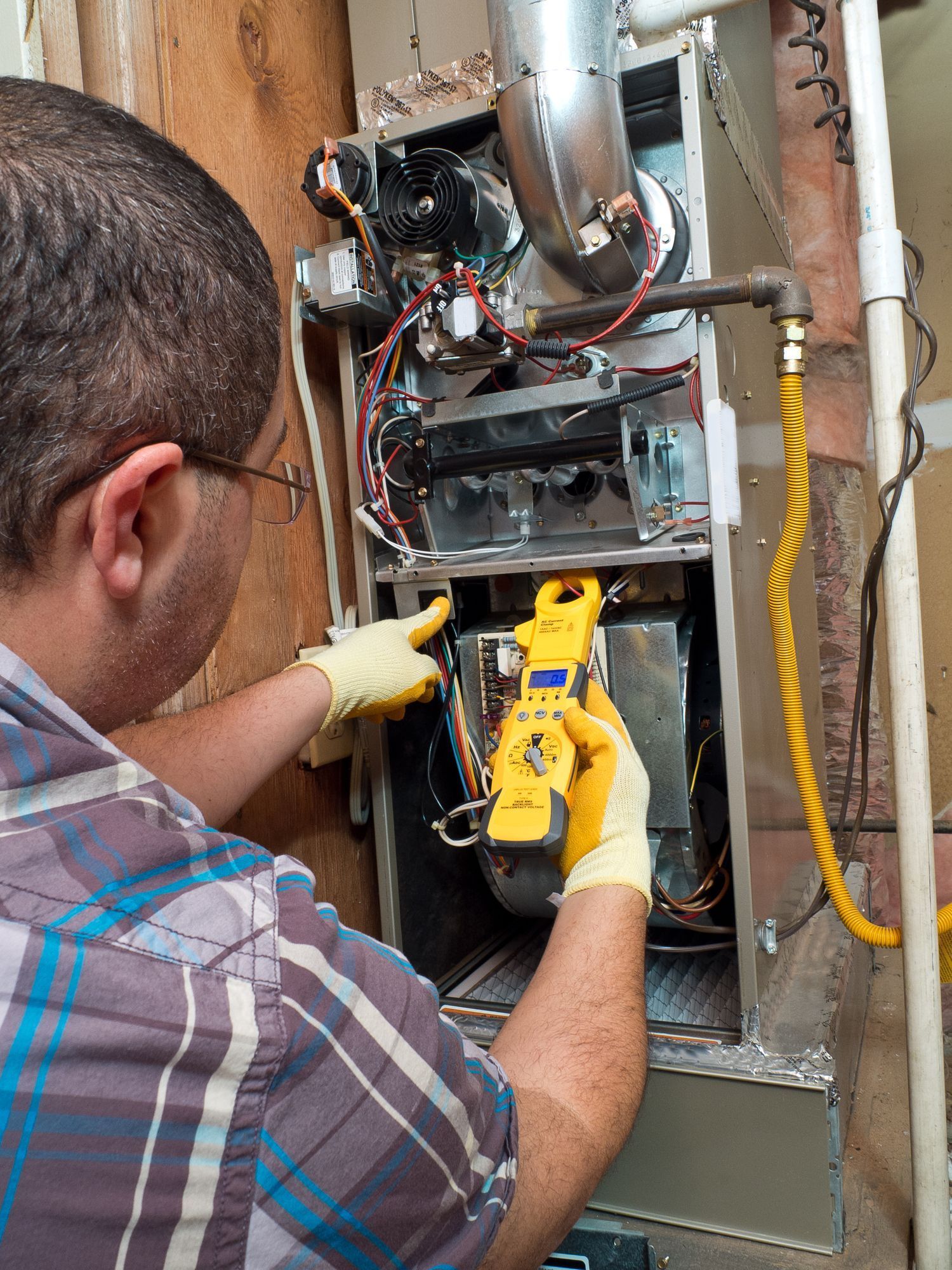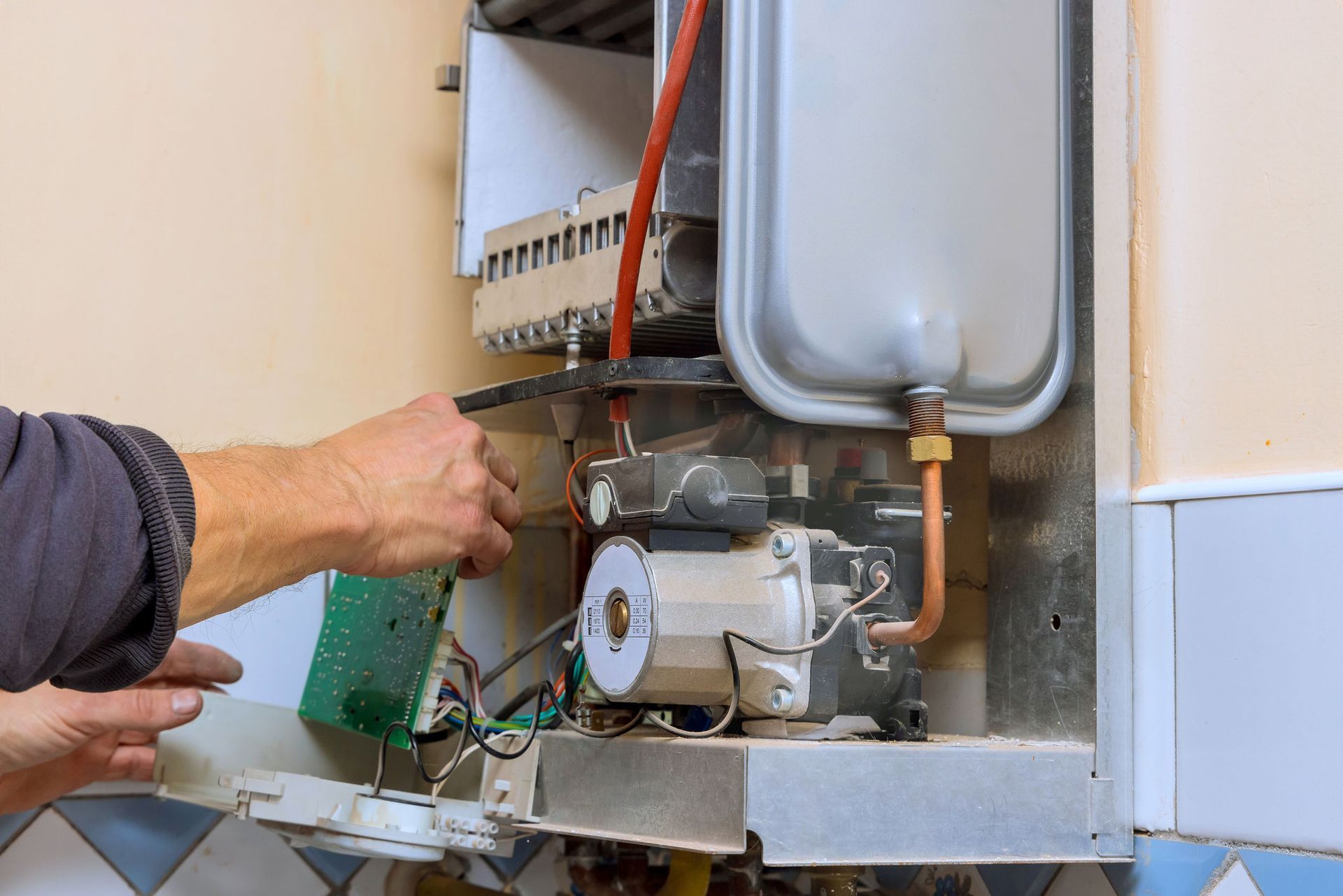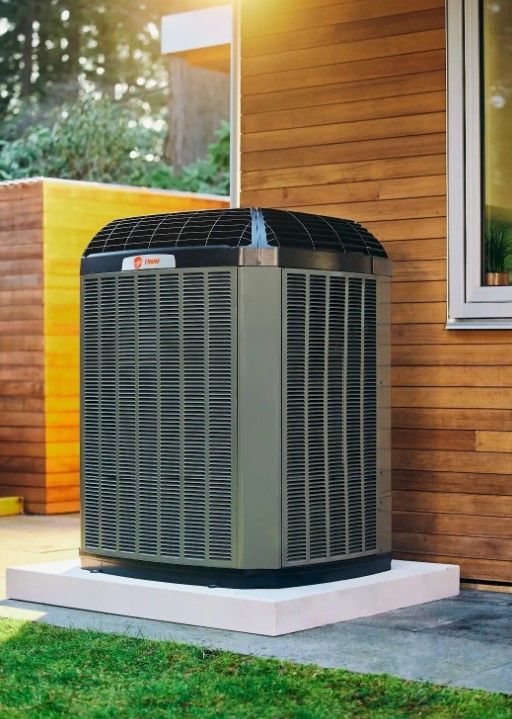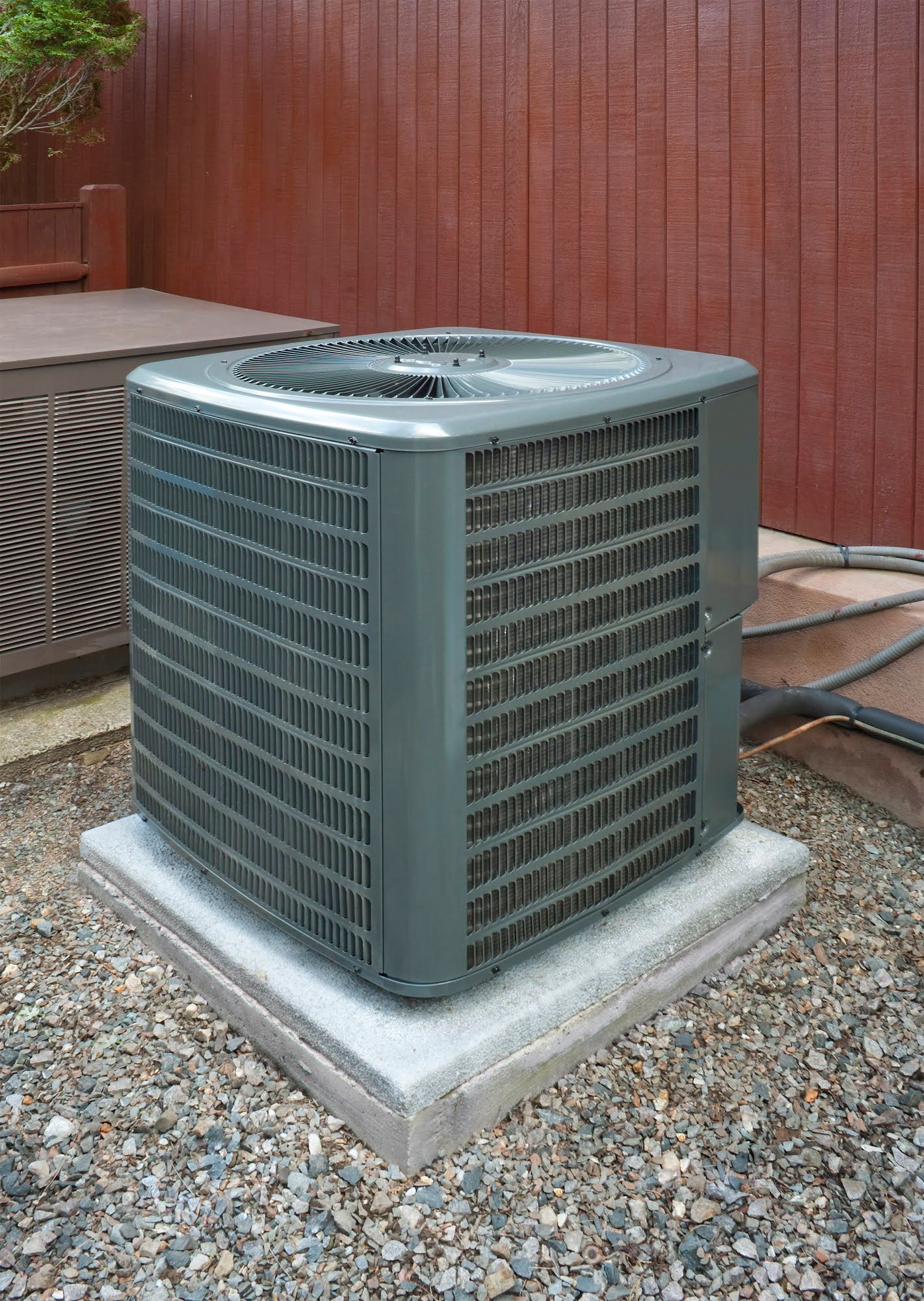The Benefits of Regular HVAC Maintenance
January 22, 2024
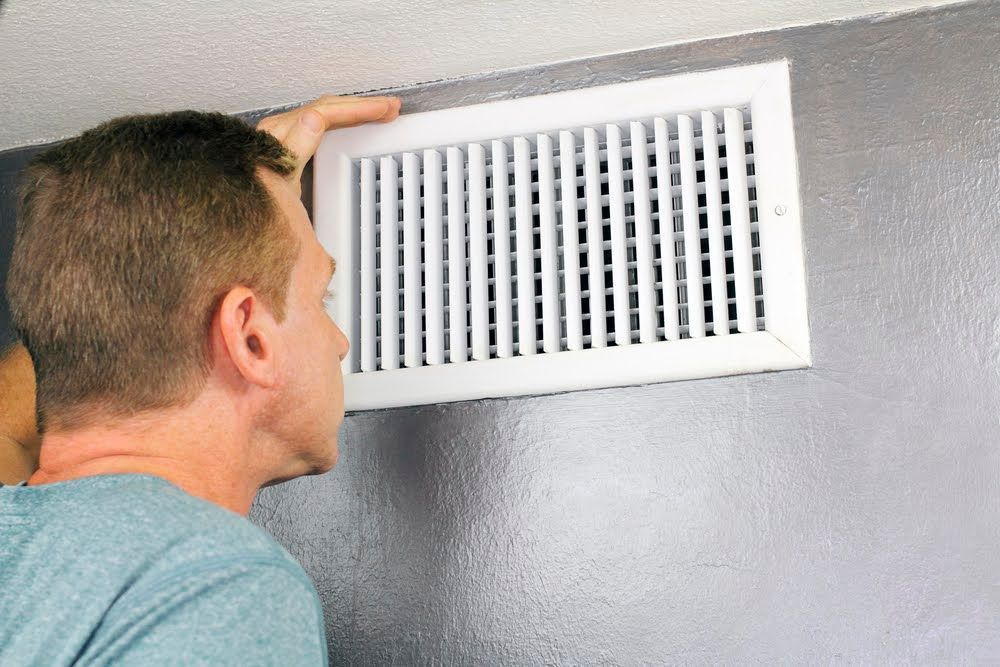
In order to keep your home comfortable all year round, routine HVAC maintenance is essential. HVAC systems work hard to keep us warm in the winter and cool in the summer, so it's important to make sure they are working at peak performance. In this blog post, we will be discussing the benefits of regular HVAC maintenance.
Whether you're a homeowner or a renter, regular HVAC maintenance is necessary to ensure that your heating and cooling system functions smoothly all year long.
Increased Efficiency
By scheduling regular HVAC maintenance, you can rest assured that your system is working efficiently. During a routine checkup, an HVAC technician will inspect and clean the various components of your system, such as the air filter and ductwork. This can help contribute to energy savings in the long run, as an efficient system will require less energy to operate. Regular maintenance can also help prevent expensive repairs down the line.Improved Indoor Air Quality
Poor indoor air quality can be detrimental to your health. During regular HVAC maintenance, an HVAC technician can inspect and clean the air filter and ductwork, which can help reduce the number of pollutants and allergens circulating in your home. This is particularly important if you or someone in your household suffers from allergies or respiratory problems.Better Comfort
When HVAC systems are not functioning properly, they may not be able to provide the level of comfort that we need. Regular maintenance can ensure that your system is functioning at peak performance, which can help to maintain the temperature and comfort level in your home. This is particularly important during extreme weather conditions.Extended Lifespan
Routine maintenance can help extend the lifespan of your HVAC system. HVAC systems that are not well maintained tend to wear out more quickly, which can mean costly repairs or replacements. With regular maintenance, an HVAC technician can identify and fix any issues before they become major problems.Safer System
Regular HVAC maintenance can also contribute to making your system safer. A malfunctioning HVAC system can be a safety hazard, particularly if it is not functioning properly. During a routine maintenance checkup, an HVAC technician can inspect and repair any issues, ensuring a safe and functioning system.Better Overall Performance
By keeping your HVAC system well-maintained, you can expect better overall performance. This means more consistent and comfortable temperatures throughout your home, as well as a quieter system. Regular maintenance can also help identify any small issues before they become big problems that require expensive repairs.Cost Savings
Regular HVAC maintenance can save you money in the long run. An efficient and well-functioning HVAC system will require less energy to operate, which can lead to lower energy bills. Additionally, routine maintenance can help prevent costly repairs down the line, which can help you avoid unexpected expenses. Small, routine maintenance tasks like checking and cleaning air filters, lubricating moving parts, and cleaning coils can help identify and prevent small issues before they turn into costly repair jobs. Regular HVAC maintenance is necessary to ensure that your heating and cooling system is operating efficiently, effectively, and safely. By scheduling regular maintenance appointments, you can enjoy a comfortable home environment year-round, while also potentially avoiding expensive repairs and saving money on costly energy bills. Keep in mind that HVAC systems are complex and can be dangerous to work on without proper training and equipment. Thus, we recommend leaving HVAC maintenance to the professionals. If you need HVAC maintenance or repair, contact our office to schedule an appointment with us at Briarwood Heating & Cooling . Our team of professionals can help keep your HVAC system running smoothly.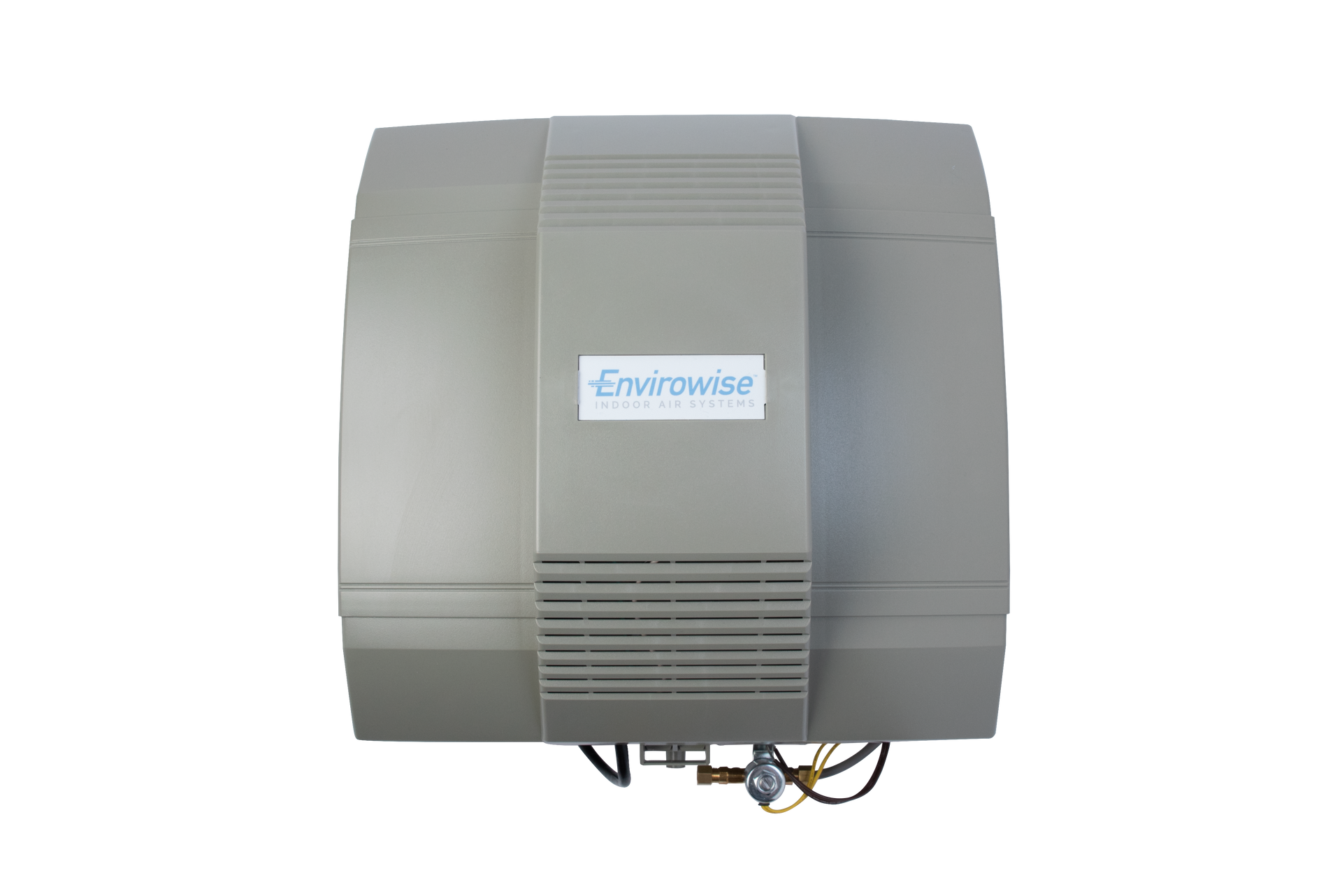
Furnaces 1. How often should I service my furnace? It’s recommended to have your furnace serviced annually, ideally before the heating season begins. Regular maintenance ensures efficient operation and extends the furnace's lifespan. Check out our coupons on Briarwood’s website for savings! 2. How do I know if my furnace needs repairs? Common signs include strange noises, uneven heating, high energy bills, frequent cycling on and off, or a yellow pilot light (if applicable). Call Briarwood if you notice these issues. 3. What size furnace do I need for my home? The size depends on your home’s square footage, insulation, climate, and energy efficiency. An HVAC professional can help to determine the correct size. If you are in need of an estimate to replace your furnace, Call Briarwood for a no cost estimate in your home. 4. What’s the average lifespan of a furnace? A well-maintained furnace typically lasts 15-20 years. Regular maintenance can help achieve or exceed this lifespan. 5. Should I upgrade to a high-efficiency furnace? High-efficiency furnaces (with AFUE ratings of 90% or higher) can lower energy bills and reduce your carbon footprint. Consider the upfront cost versus long-term savings when deciding. 6. What type of filter should I use for my furnace? The type depends on your furnace model and your indoor air quality needs. Pleated filters offer good filtration for most homes. Check the owner’s manual for compatibility. Another option is electronic air cleaners like the Aerus Air Scrubber designed by NASA. Humidifiers 1. Why do I need a humidifier? Humidifiers add moisture to dry indoor air, which can prevent dry skin, alleviate respiratory issues, and protect wooden furniture and floors from cracking. 2. What types of humidifiers work with furnaces? Furnace-compatible humidifiers include bypass, fan-powered, and steam humidifiers. Each type has its advantages; consult with Briarwood for a professional to determine the best option for your home. 3. How do I maintain my furnace humidifier? Included in your Furnace clean and check from Briarwood is cleaning your humidifier, drain lines and changing the evaporator pad. 4. What’s the ideal indoor humidity level in winter? Aim for 30-50% relative humidity. Levels below 30% can cause dry air, while levels above 50% may encourage mold and dust mites. 5. Can a humidifier damage my furnace? Properly installed and maintained humidifiers won’t damage your furnace. However, neglecting maintenance can lead to leaks or mineral buildup, potentially causing issues. 6. Do I need a humidifier if I have a high-efficiency furnace? High-efficiency furnaces often dry out the air more than older models. A humidifier can improve comfort, even in homes with modern heating systems. General Questions 1. Can I run my furnace and humidifier simultaneously? Yes, they are designed to work together. The furnace heats the air, and the humidifier adds moisture, improving overall comfort. 2. How do I know if my home is too dry? Signs of dry air include static electricity, dry skin, irritated sinuses, and cracking wood. A hygrometer can measure indoor humidity levels. 3. What should I do if my humidifier or furnace isn’t working? Check for common issues like power supply problems, clogged filters, or incorrect thermostat settings. If the problem persists, contact Briarwood Heating and Cooling to schedule one of our top notch technicians to repair your system. 4. Can I install a furnace humidifier myself? While it’s possible for handy homeowners, professional installation ensures proper setup and avoids potential issues. It may also preserve warranties. This FAQ is designed to address common questions and concerns related to furnaces and humidifiers. For more specific issues or guidance, consult Briarwood Heating and Cooling at 248-299-8126 . We have been proudly serving Rochester, Shelby Twp, Sterling Heights, Lake Orion and surrounding areas for over 25 years!
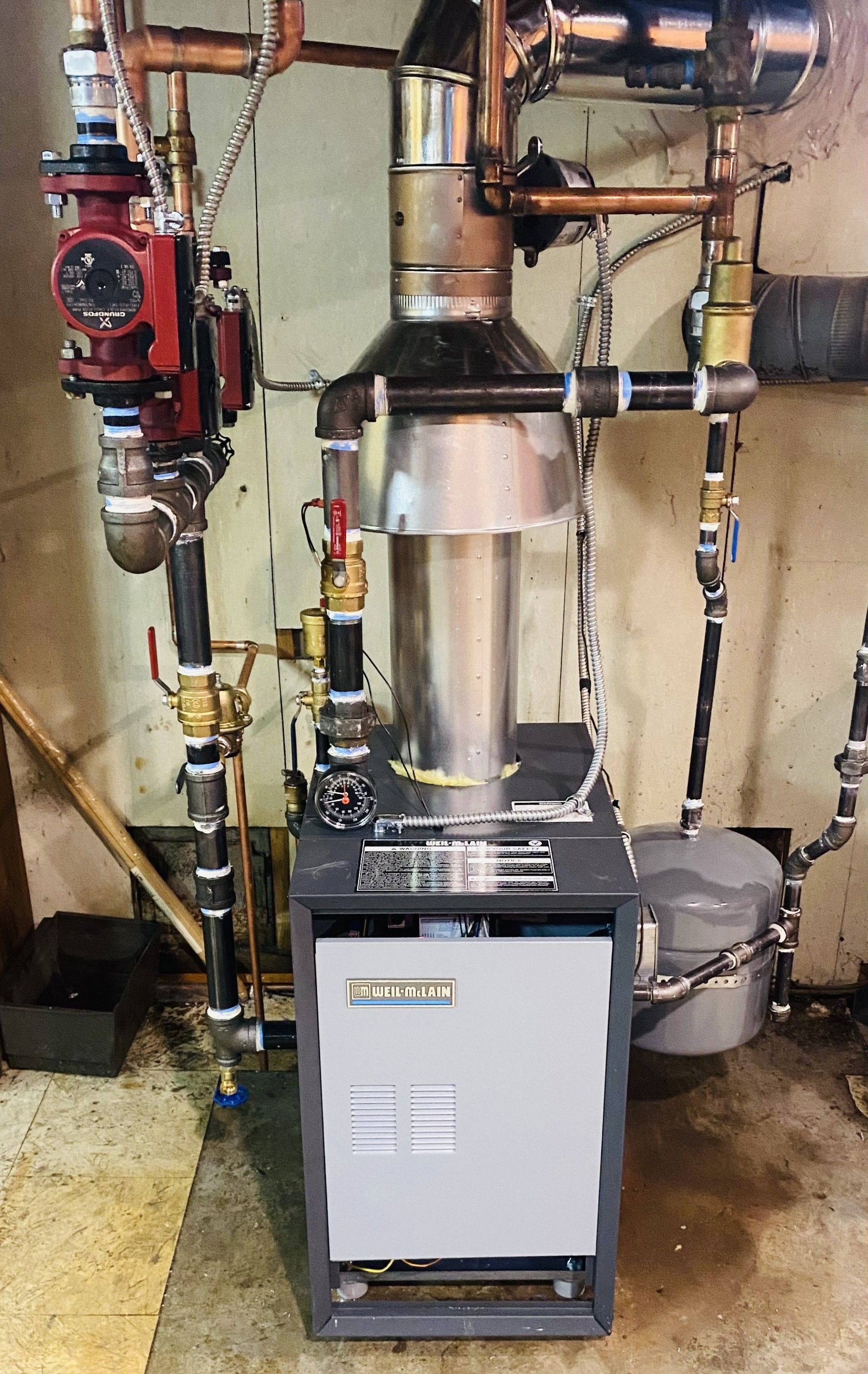
When it comes to maintaining the comfort and safety of your home, your boiler is one of the most vital components. It’s responsible for keeping you warm during the colder months and in some cases ensuring your hot water is always available. However, like any mechanical system, a boiler requires regular care to function optimally. One of the key aspects of this maintenance is the boiler clean and check. Here’s why these services are crucial for your boiler's performance, safety, and longevity. What Are Boiler Clean and Checks? A boiler clean and check involve a comprehensive maintenance routine performed by a professional technician. Call Briarwood Heating & Cooling of Rochester Hills to schedule a boiler expert to come to your home at 248-299-8126. This process typically includes: Cleaning: Removing dirt, dust, and debris from the boiler’s internal components. Inspection: Checking all parts of the boiler for wear, damage, and proper function. Testing: Ensuring the system operates efficiently and safely. Adjustments: Making necessary adjustments to optimize performance and efficiency. Why Regular Cleaning and Checking Are Essential Maximized Efficiency Over time, boilers can accumulate grime and soot, which can reduce their efficiency. A thorough cleaning removes these obstructions, allowing the boiler to operate more efficiently. This not only helps in reducing energy consumption but also lowers your utility bills, as a cleaner boiler uses less fuel to produce the same amount of heat. 2. Enhanced Safety A well-maintained boiler is a safe boiler. Regular clean and checks are crucial for identifying potential safety hazards such as: Carbon Monoxide Leaks: Carbon monoxide is a colorless, odorless gas that can be deadly. Regular checks help ensure that your boiler’s flue and ventilation are functioning correctly, reducing the risk of leaks. Gas Leaks: A professional can check for any gas leaks that might pose a safety risk. Faulty Components: Ensuring that all components are in good working order helps prevent dangerous malfunctions. Water leaks: A professional can check for water leaks before it causes damage to your home 3. Extended Lifespan Boilers are a significant investment, and regular maintenance helps protect that investment. By removing dirt and debris and fixing minor issues before they become serious problems, you can extend the lifespan of your boiler. This proactive approach can help you avoid costly replacements and repairs in the future. 4. Consistent Performance A clean and well-maintained boiler operates more reliably. Regular clean and checks help ensure that your boiler performs consistently, keeping your home warm and your hot water flowing without unexpected breakdowns. This reliability is especially important during the winter months when you depend on your boiler the most. 5. Lower Repair Costs Minor issues caught during routine maintenance are usually less expensive to fix than major problems that arise from neglect. By investing in regular clean and checks, you can avoid the higher costs associated with emergency repairs and significant breakdowns. When to Schedule a Boiler Clean and Check For optimal performance, it’s recommended to schedule a boiler clean and check at least once a year. The best time to arrange this service is before the heating season begins, so your boiler is ready to perform efficiently when you need it the most. However, if you notice any unusual noises, reduced efficiency, or other issues, it’s a good idea to schedule a check sooner. What to Expect During a Clean and Check During a boiler clean and check, a technician will typically: Clean the Boiler: Remove any accumulated soot, dust, and debris from the boiler’s components. Inspect: Examine key components such as the burner, heat exchanger, and flue for signs of wear or damage. Test: Ensure that the boiler operates efficiently and safely, checking for proper combustion and ventilation. Adjust: Make any necessary adjustments to improve performance and efficiency. Conclusion Regular boiler clean and checks are essential for maintaining the efficiency, safety, and longevity of your heating system. By investing in these routine services, you ensure that your boiler operates at its best, providing consistent warmth and hot water while minimizing the risk of costly repairs and safety issues. If it’s been over a year since your last boiler service, or if you’re experiencing any issues with your heating system, don’t wait—schedule a clean and check with a qualified professional today. Keeping up with this crucial maintenance will give you peace of mind and help ensure your home remains comfortable and safe throughout the year. Call the boiler experts at Briarwood Heating and Cooling at 248-299-8126 . We proudly have been serving Grosse Pointe, St Clair Shores and surrounding Oakland and Macomb County for over 25 years!
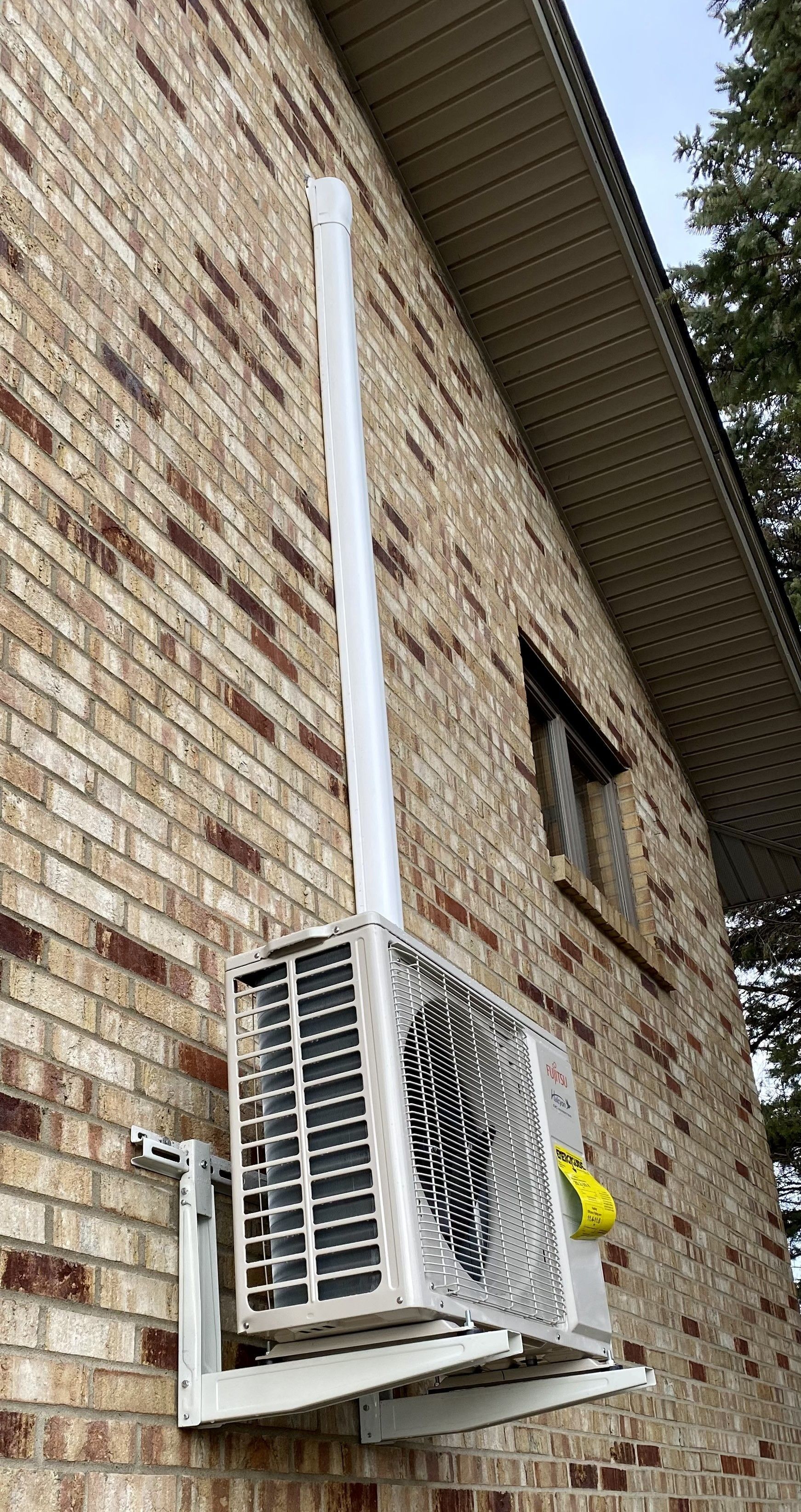
As energy efficiency and customizable climate control become increasingly important in today’s homes and businesses, mini split systems are emerging as a popular solution. These systems, known for their flexibility, efficiency, and ease of installation, offer a host of benefits that make them a standout choice for modern climate control. In this blog, we’ll explore the ins and outs of mini split systems and why they might be the perfect option for your heating and cooling needs. What is a Mini Split System? A mini split system, also known as a ductless mini split, is a type of heating and cooling system that does not require ductwork to distribute air throughout a space. Instead, it consists of two main components: an outdoor compressor/condenser and one or more indoor air-handling units. These units are connected by a conduit that houses the communication cable, liquid tubing, suction tubing, and a condensate drain. Key Benefits of Mini Split Systems 1. **Energy Efficiency** One of the most significant advantages of mini split systems is their energy efficiency. Traditional ducted systems can lose a significant amount of energy through the ductwork, but mini splits eliminate this issue by delivering air directly to the desired spaces. Additionally, many mini split systems are equipped with inverter technology, which allows the compressor to adjust its speed based on the cooling or heating demand, further enhancing efficiency and reducing energy consumption. 2. **Flexible Zoning** Mini split systems offer unparalleled flexibility when it comes to zoning. Each indoor unit can be controlled independently, allowing different rooms or zones to be set to different temperatures. This means you can cool or heat specific areas as needed, providing personalized comfort and reducing energy waste by not conditioning unused spaces. 3. **Easy Installation** Compared to traditional HVAC systems, mini splits are relatively easy to install. Since they don’t require ductwork, installation is less invasive and can be completed more quickly. The conduit between the outdoor and indoor units typically requires only a small hole in the wall, minimizing the impact on the building’s structure and aesthetics. 4. **Improved Air Quality** Mini split systems often include advanced filtration options that can help improve indoor air quality. These filters can capture dust, allergens, and other pollutants, providing cleaner air for your home or business. Additionally, because mini splits don’t use ducts, there’s no risk of dust and debris accumulating in ductwork and being circulated throughout the space. 5. **Quiet Operation** Mini splits are known for their quiet operation. The indoor units are designed to operate at low noise levels, making them ideal for bedrooms, offices, and other areas where noise might be a concern. The outdoor units are also generally quieter than those of traditional HVAC systems. Applications of Mini Split Systems 1. **Residential Homes** Mini split systems are an excellent choice for residential homes, particularly in situations where installing ductwork would be impractical or too costly. They are ideal for new additions, renovated spaces, or homes without existing ductwork. Homeowners can enjoy the benefits of efficient and customizable climate control without the need for extensive modifications to their property. 2. **Commercial Spaces** In commercial settings, mini splits offer a versatile and efficient solution for climate control. Offices, retail stores, restaurants, and other commercial spaces can benefit from the zoning capabilities, allowing different areas to be conditioned according to their specific needs. This can lead to significant energy savings and improved comfort for employees and customers. 3. **Specialty Applications** Mini split systems are also well-suited for specialty applications such as server rooms, workshops, and other spaces that require precise temperature control. Their ability to operate independently in different zones makes them ideal for maintaining specific environmental conditions. Conclusion Mini split systems represent a modern and efficient approach to heating and cooling, offering a range of benefits that make them a compelling choice for both residential and commercial applications. Their energy efficiency, flexible zoning, easy installation, improved air quality, and quiet operation set them apart from traditional HVAC systems. If you’re looking for a cost-effective and versatile solution for your climate control needs, a mini split system might be the perfect option for you. Call Briarwood Heating and Cooling today to schedule a no-cost estimate at 248-299-8126. We have been proudly serving Sterling Heights, Shelby Township, Rochester and surrounding areas for over 25 years!
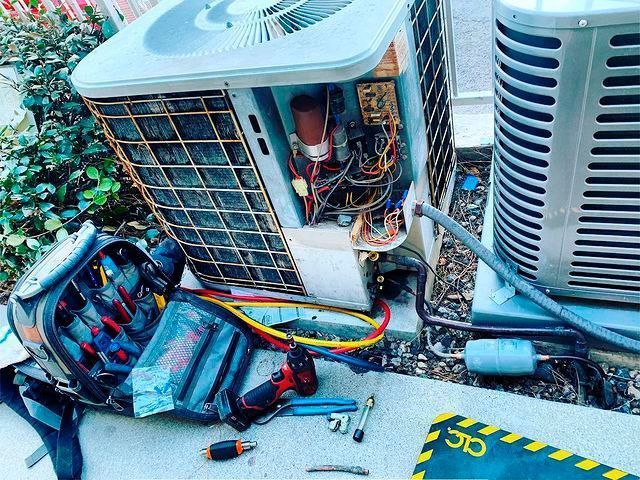
If your air conditioner is not keeping up with the heat, it could mean you’re in need of air conditioning repair. Several factors could be contributing to the issue. Here are some common reasons why your AC could be struggling: ### 1. **Dirty or Clogged Air Filters** Air filters trap dust, dirt, and other particles to keep your indoor air clean. Over time, these filters can become clogged, reducing airflow and making it harder for your AC to cool your home. Regularly replacing or cleaning your filters can improve performance. ### 2. **Blocked or Closed Vents** Ensure that all vents and registers in your home are open and unobstructed. Furniture, curtains, or other objects can block airflow, preventing cool air from circulating properly. ### 3. **Thermostat Issues** Your thermostat might be incorrectly set or malfunctioning. Double-check the settings to ensure it’s set to "cool" and that the temperature setting is lower than the current room temperature. If the thermostat is faulty, it may need to be replaced. ### 4. **Dirty Coils** Both the evaporator coil (inside your home) and the condenser coil (outside your home) need to be clean for the AC to work efficiently. Dirt and debris on these coils can reduce their ability to absorb and release heat, making your system less effective. ### 5. **Low Refrigerant Levels** Refrigerant is essential for the cooling process. If the refrigerant levels are low, likely due to a leak, your AC won’t be able to cool effectively. Low refrigerant levels require professional attention to locate and fix the leak and recharge the system. ### 6. **Leaky Ductwork** Air leaks in the ductwork can result in significant loss of cooled air before it reaches your living spaces. This makes your AC work harder to achieve the desired temperature. Sealing duct leaks can improve efficiency and cooling performance. ### 7. **Inadequate Insulation** Poor insulation allows cool air to escape and warm air to enter, making it difficult for your AC to maintain a comfortable temperature. Insulating your home properly can help keep the cool air inside. ### 8. **Outdoor Unit Obstructions** The outdoor condenser unit needs sufficient airflow to release the heat it removes from your home. Ensure that there is no debris, vegetation, or other obstructions around the unit. ### 9. **Old or Inefficient AC Unit** If your air conditioner is old (typically more than 10-15 years), it may not be as efficient as newer models. Over time, components wear out and the system becomes less effective. Upgrading to a new, energy-efficient model can significantly improve cooling performance. ### 10. **High Outdoor Temperatures** During extreme heat waves, even a well-functioning AC might struggle to keep up. When outdoor temperatures are excessively high, your AC may not be able to maintain the desired indoor temperature. In such cases, additional measures like using fans and reducing heat-generating activities can help. ### 11. **Improperly Sized AC Unit** If your AC unit is too small for your home, it won’t be able to cool effectively, especially during peak heat. Conversely, an oversized unit may cycle on and off too quickly, failing to dehumidify the air properly. Proper sizing is crucial for optimal performance. ### Conclusion An air conditioner that isn’t keeping up can be due to a variety of reasons, from simple fixes like replacing a dirty filters to more complex issues like refrigerant leaks or an improperly sized unit. Regular maintenance and prompt attention to problems can help ensure your system runs efficiently. If you’ve checked these common issues and your AC is still struggling and in need of ac repair, call the professionals at BRIARWOOD HEATING AND COOLING ; 248-299-8126. We have been serving Shelby Township and Sterling Heights for over 25 years now!
